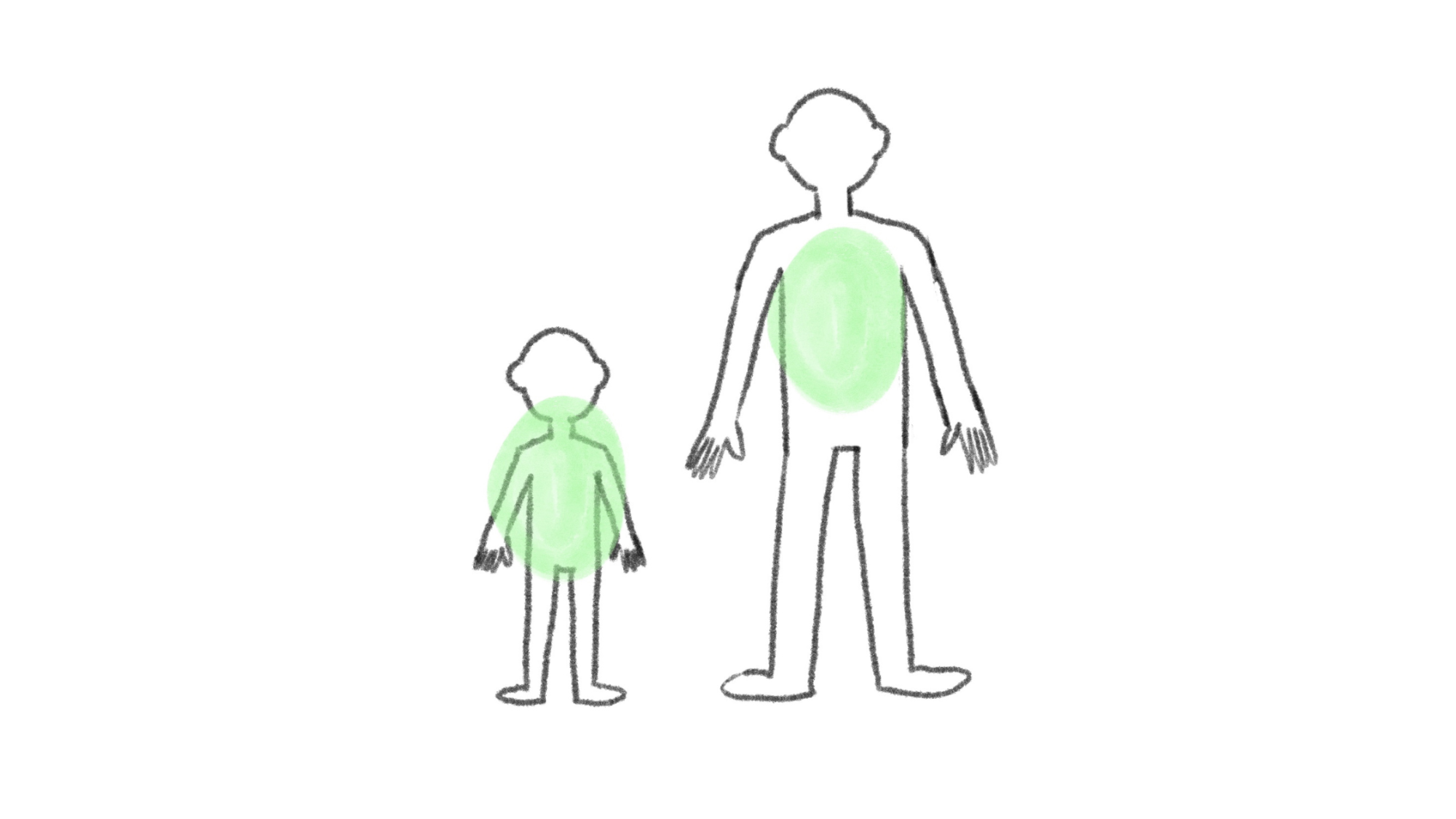“Why does my child get SO upset by something SO small?”
Most (if not all) caregivers have experienced their child become intensely upset over something that seems small or even insignificant in the long run. They may go into a rage when you give them the flavor of candy they didn’t want, or cry at length when you leave the room for one minute after telling them you’ll be back soon. My mother has told me stories of when my 3-year-old self would smack my little brother when he would try to take a toy I was playing with. Your caregivers likely have similar stories about you. It is frustrating and even baffling at times, and there is a developmental explanation for it.
The human brain does not fully develop until the age of 25 years. As we grow up, our brain and nervous system have to learn from our caregivers and others around us how to manage different challenges. This includes what to do when we have big feelings. Children’s feelings actually do feel larger to them because their nervous system is still figuring out how to be regulated with them!
Regulating Big Feelings
By “regulated” we mean being able to remain connected with the self and others and being safe when we experience large emotions. Until a child has the skills to self-regulate, they need their caregivers to co-regulate with them. In order to co-regulate, the adult must attune themself to the child’s feelings to create a safe space for the child to feel seen, held, and soothed. The adult uses their matured nervous system to teach the child’s developing nervous system what to do. Hugging, taking deep breaths together, and validating how the child is feeling, no matter how big or small the trigger, are all examples of attunement and co-regulation. As the child’s nervous system develops and they grow older, they will learn that some problems aren’t as big as they seem and how to cope with the emotions that come along the way.
Children are learning what it feels like to be human and you do not have to support them in this alone. When working with a therapist at Individual and Family Connection, you have the opportunity in parent sessions to learn how to engage in co-regulation with your child in ways that will pull from your combined strengths. While this may feel foreign and uncomfortable for you or the child at first, your therapist will be there to support you in your journey of supporting your child.

